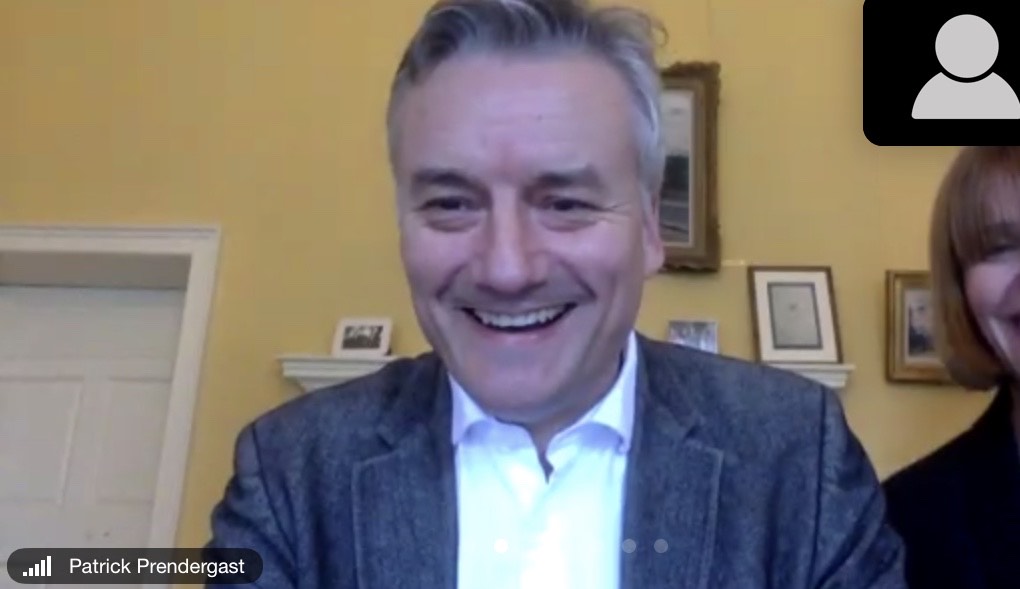The possible implementation of a “no detriment” policy for summer assessments will be discussed at the University Council meeting next Wednesday, the provost confirmed on a Zoom call with Trinity residents, while also offering assurance that leases will be extended.
On the Zoom call, which was attended by several dozen students and staff members, Provost Patrick Prendergast called the no detriment policy, whereby students’ overall grade average cannot be brought down so long as they pass, “good in concept”.
“We’ll see how we can ensure that the sensible and reasonable aspirations behind no detriment are put into practise,” he said, later adding: “We are certainly keen that students don’t suffer any detriment and we will work to find a way for that to be possible within the Trinity context.”
Prendergast said that he must have received “200 emails” relating to the policy, as part of an emailing campaign launched today. Two petitions calling for the implementation of the policy have also circulated among students, with 3,400 and 1,100 signatures.
Trinity College Dublin Students’ Union (TCDSU) President Laura Beston, Vice Provost Juergen Barkhoff and Senior Lecturer Kevin Mitchell are expected to present the proposal at University Council next Wednesday.
The purpose of the approximately 40 minute call was to provide “the provost an opportunity to interact with some residents on campus”, offer reassurance, and allow student residents to ask questions, said Brendan Tangney, the computer science professor who hosted the call. The Zoom meeting went smoothly overall but was interrupted early on by at least one troll.
“I’m addressing you as a fellow resident,” the provost told students on the call. “We are all in this together.” He said he was seeking to reassure students and encouraged residents to maintain contact with each other by waving and conversing on the campus grounds while maintaining a two-metre distance.
Several students posed questions to the provost. The provost confirmed that student residents requesting an extension to their lease will be granted it. “Absolutely no problem at all, but keep in touch with me and I can extend your tenancy,” Accommodation Officer Hazel Kinmonth said in response to a student highlighting that the leases end before the end of the now extended assessment period.
One student requested that residents have access to printers on campus. Beston suggested that the assistant junior dean’s email their assigned residents and offer to print material for them, so long as the staff didn’t receive too many requests.
In response to a question, the provost said that “there’s a greater scope for using tech in education” and some elements of online learning may continue to be used after the pandemic ends.
The call did not occur without some issues. “What is this thing beeping on me when I’m trying to smoke the Mary Jane,” was the first question posed to the provost by an anonymous attendee.
The anonymous user also inquired about a ghost haunting one of the campus buildings. “I don’t know the answer to those questions,” the provost said in response. He joked about the ghost later in the call.
The call was attended by the provost, Beston, Trinity’s assistant junior deans and the acting head of the counselling service, who highlighted the means through which they can help residents.
Each assistant junior dean has been assigned to around a dozen students, who they have reached out to offering assistance. Less than 100 students remain on campus, Assistant Junior Dean Philip Coleman said.
The no detriment policy is similar to measures taken by several UK universities in light of the coronavirus pandemic. Under the policy, if a student receives a mark higher than their average from previous assessments before the closure of College their average mark would go up, but if they received a mark lower than their average but high enough to pass, their average would remain the same.
A private Facebook group was established this morning to share information on which members of staff to contact to lobby for the policy to be implemented, and an email template that students can use. Students were encouraged to email the provost, vice-provost and senior lecturer.
Students received an email on Thursday signed by the senior lecturer and vice-provost informing them that semester two undergraduate assessments will be conducted through a mixture of online and offline exams and assignments.
Additional reporting by Finn Purdy






